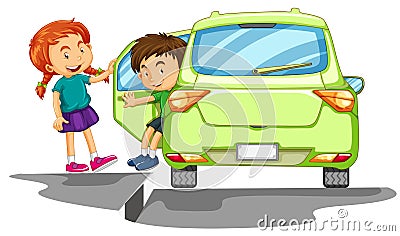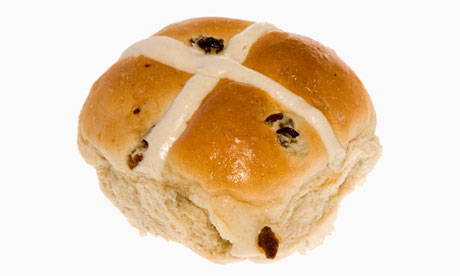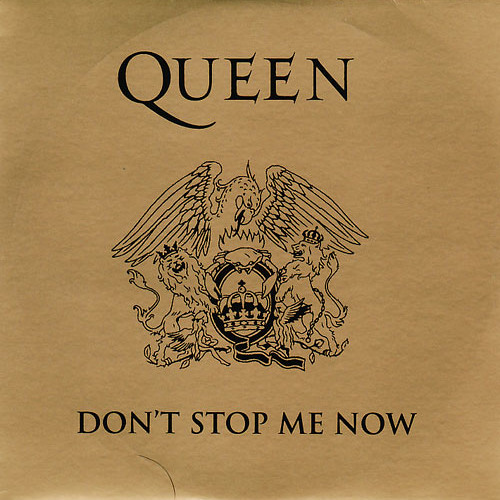http://www.english-4u.de/adj_adv_ex1.htm
http://www.english-4u.de/adj_adv_ex3.htm
Dear students, I hope you can use this webpage to keep progressing during your English trip. I hope you enjoy it.
Labels

This work is licensed under a Creative Commons Attribution-NonCommercial-ShareAlike 4.0 International License.
Tuesday, 25 April 2017
Thursday, 20 April 2017
Tuesday, 18 April 2017
Back 2 school : Revision
Dear students,
Let's play a game to revise all the contents from the previous terms.
Sunday, 16 April 2017
The verb 'get' and its multiple uses
The Easter holidays have just begun and I am using my first day to write a blog entry. I must not be much of a holiday fan myself, hehe. Anyway, I feel like devoting this entry to one recurrent verb in the English language, no other than the verb 'get'. My students of Básico I keep asking me what it means. They simply want a Spanish translation for this English verb, something which is just not possible. If you are learning Egnlish, teh verb 'get' will accompany you during your trip (just like the verb 'have', click on this link if you want to revisit my post about the verb 'have'). Let's begin. The verb 'get has multiple uses in English :
1. 'Get' as a normal verb :
When you studied irregular verbs at school, the teacher probably told you that 'get' is a synonym for 'conseguir' ('achieve') and this can be true :
- I got 10 in the English exam (=achieve)
However, 'get' has multiple meanings :
- I got an email from my boss (=received).
- We need to get bread for the dinner (=buy).
- John got a taxi to the airport (=take).
- We got a cold after skiing. (=catch).
- You still don't get it. (=understand).
- Now, he gets a lot of money in his new job (=earn).
'Get' can sometimes surprise it because it can work as an auto-antonym :
- I need to get Laura a present for her birthday (=buy).
- I got an awful present from Laura (=receive).
When 'get' is followed by the preposition 'to', it means 'arrive'.
- After ten hours, I finally got to the United States (=arrive).
2. 'Get' + adjectives
This is a special use of 'get'. In this case 'get' works as a copular verb (followed by a subject complement). This use normally corresponds to reflexive verbs in Spanish (verbs finished in 'se'). In all these cases, 'get' is a synonym for 'become.' Have a look :
ENGLISH
|
SPANISH
|
Get married
|
Casarse
|
Get divorced
|
Divorciarse
|
Get engaged
|
Prometerse
|
Get ready
|
Prepararse
|
Get angry
|
Enfadarse
|
Get bored
|
Aburrirse / hartarse
|
Get tired
|
Cansarse
|
Get lost
|
Perderse
|
Get dressed
| Vestirse |
Get naked
| Desnudarse |
There are other examples where 'get' doesn't correspond with reflexive verbs in Spanish :
- The cinema is getting more and more expensive (=become).
3. 'Get' + prepositions/adverbs
In basic levels, 'get' is associated to means of transport :
We use 'get on' to get on board all the means of transport (the bus, the train, the ship, the plane, the bike, the motorbike...), except the car (or similar). We use 'get off' to descend from the previous means of trasnsport.
 |
| The children are getting on the bus. From : https://clipartfest.com/categories/view/0507004ce4bf4eaff5c97d6bcbfa320ca3666a7d/getting-on-the-bus-clipart.html |
 |
| The children are getting off the bus. From : https://clipartfest.com/categories/view/84b97c67db0570d289c34b08697f3677886688d8/get-off-the-bus-clipart.html |
The car, however, is different. With the car, van and taxi, we use 'get into' to go onboard, and 'get out of' to descend.
 |
| The man is getting into the car. From : https://clipartfest.com/categories/view/31da91539baba464590a8e8180955dac49f13e7c/getting-in-the-car-clipart.html |
 |
| The boy is getting out of the car. From : https://es.dreamstime.com/stock-de-ilustraci%C3%B3n-el-salir-del-muchacho-del-coche-verde-image70687530 |
However, this is going to get more complicated. 'Get' is the protagonist of a great deal of phrasal verbs, prepostional verbs and phrasal-prepostional verbs.
Get up : I get up at six o'clock every day (=stand / sit up).
Get on (well) with : He doesn't get on well with his mother-in-law. They argue all the time (=have a good relationship).
Get along : They argue all the time. They don't get along (=have a good relationship).
Get by : I get by with 300 euros a month. / I can't speak Chinese well. I only get by in Chinese (=to survive, or manage to do something)
Get away (with) : He killed him and got away with it (=escape).
Get across : He managed to get his message across (=communicate).
Get over : After a long week, he finally got over the flu (=recover).
Get around : He likes getting around the city (=travel).
Get through : I have to get through with a lot of work (=finish).
I phoned you but I couldn't get through (=communicate).
Get back : I have to go. I need to get back to work (=return).
4. Get in passive sentences
In English, the passive is normally formed with the verb 'to be.' However, only when the subject is a person, we can use 'get' in the passive. Have a look at the examples :
- In Spain, teachers get paid less than in England.
- Paul got fired yesterday.
5.'Get' in causative constructions
In English, we can use the structure 'passive subject' + verb 'get'/'have'+ object + participle, to indicate that someone does soemthing for you. It has passive meaning :
'I got my hair cut yesterday by the hairdresser.' = The hairdresser cut my hair yesterday.
'I got my car painted lst summer.' = A painter painted my house last summer.
Another possibility is to use the structure 'get + person +participle', for example, 'smoking will get you killed.'
Yet another option is to follow the structure : subject + verb 'get' + person + to-infinitive : 'I got my assistant to look for information about new technologies.' (=force / make) 'I made my assistant look for information about new technologies.'
6. Expressions with 'get'
There are some important expressions with 'get' my favourite being : 'you have to get going' (=get started), or get to know a person (=when you finally really know someone).
Well, as you know, the verb 'get' in English is pretty complicated. I hope I have shed some light and that know you have got to understand it better, hehe.
See you around.
Maundy Thursday
Want it or not, Easter has arrived in town. If you happen to be in Spain, you will probably have crossed paths with countless processions to honour the death and resurrection of Jesus Christ. However, as I explained in my last year's post about Easter (including videos and exercises related to Easter), Easter is not only a Spanish tradition.
In this entry I will talk about one important tradition in the United Kingdom : Maundy Thursday. This day is the day before Good Friday, today it is ! On Maundy Thursday, two important events in the Christian religion took place.
Firstly, it was the Last Supper where Jesus Christ commanded his disciples to love one another. "Maundy" comes from Latin "mandatum" (that is, order or command). That day was the first day of religious communion, so there are special services in churches to commemorate this day.
Secondly, on this day, Jesus Christ washed the feet of his disciples himself to prove and pass on his humility. This is why still today some bishops and priests organize foot-washing rituals, washing the feet of the poor and some monarchs in the past devoted this day to washing the feet of the poor. Interesting tradition, don't you think ?
However, the tradition of monarchs washing the feet of their poor was lost and it has been replaced by money, indeed ! Nowadays, the Queen of England offers some coins (Maundy money) to men and women (precisely, a number of men and women equal to the age of the current age of the monarch).
Last year, 90 people received Maunday money.
| From : http://british-coin-price-guide.homelinux.com/British-Maundy-Money-Coin-Set-Price-Guide_files/Page2019.htm |
Here you have a video summarizing the traditions of Maunday Thursday :
And here you have last year's Maunday Thursday ceremony. You can see the Queen handing over the Maundy money to some 90 men and women !
Well, As you can see, Easter has its quirky traditions outside Spain. I hope you have liked this post. I'm going to finish with a fast fact about Maundy Thursday (or Holy Thursday) : Unlike Good Friday, Maundy Thursday is not a public holiday in the United Kingdom.
Enjoy the rest of the Easter holidays and do not eat too many Easter eggs !
Enjoy the rest of the Easter holidays and do not eat too many Easter eggs !
Thursday, 6 April 2017
Easter videos to test your listening comprehension
Did you read my post about Easter ? To practise your listening, I thought it would be a good idea to prepare a compilation of some videos of Easter. You will be able to see the different traditions and customs mentioned in my post :
Did you like the video ? It was really easy ! Not let's talk about British all over the world :
Here you have another interesting video !
And the last one :
Did you like my compilation of videos ? Did you do the exercises ? I hope so ! Easter is over, which means Easter holidays are about to finish and we have to come back to ... school !
Did you like the video ? It was really easy ! Not let's talk about British all over the world :
Here you have another interesting video !
And the last one :
Did you like my compilation of videos ? Did you do the exercises ? I hope so ! Easter is over, which means Easter holidays are about to finish and we have to come back to ... school !
Easter is not only a Spanish tradition
Hello there,
Holidays at last ! It's been a long term for me but I am finally on holidays : on Easter holidays ! There is a wide misconception that Easter is not "celebrated" in the English-speaking world. I agree that Spanish celebrations of Easter outnumber those in the English culture, but Easter traditions in the English-speaking countries are also important. Let's summarize some of the most important ones :
1. Easter eggs : At Easter, it is customary to buy, give or exchange Easter eggs. Why ? The eggs represent Jesus Christ and when they are broken that represents his resurrection (the breaking of Jesus's tomb). In a wider sense, eggs are a symbol of rebirth and fertility. There are eggs of various types nowadays, but chocolate eggs seem to have flooded the market. There are also traditional boiled eggs dyed with a lot of decoration. Hard-boiled eggs are very popular at Easter and some people even paint them and dye them :
| From : http://headingforenglish.blogspot.com.es/2015/03/easter-eggs.html |
Eggs were really popular because during Lent, neither meat nor eggs should be eaten. It was during Easter after Lent that people could 'feast' on eggs.
2. Easter games
Easter eggs are the protagonist of some really entertaining traditions :
- Egg tapping or egg knocking : In this fun game, you have to try to break another contestant's egg by tapping or knocking it with your eggs, but without breaking your egg. Yes, you hard-boile your eggs, you decorate them only to use them to break other people's eggs. Ironical !
| From : http://blog.haven.com/2015/03/28/five-different-easter-traditions-to-try-out-with-your-kids/ |
- Easter hunt : This outdoor game is ideal for small children. Adults hide some eggs outside for children to look for them. These eggs are usually filled with chocolate or with other candies. So, in other words, it is like a treasure scavenger hunt but with eggs !
| From : http://www.brooklinoptimist.org/optimist/programs/easter-egg-hunt.html |
- Easter egg roll : It is a race where children must push the eggs with a spoon. It is usually held on Easter Monday in the White House Lawns.
| From : http://people.howstuffworks.com/culture-traditions/holidays-other/easter6.htm |
- Easter bunny : It is a bunny that brings Easter eggs to children. Much like an Easter Santa Claus.
| From : http://cmrrevents.com/wordpress/easter-trains/ |
3. Easter foods : There are a lot of different typical Easter foods, namely :
Hot cross bun Chocolate Easter bunny
Simnel cake Jelly beans
4. Important dates :
- Lent : Six weeks before Easter Sunday. During this time, people must refrain from eating one food of their liking and be disciplined (which includes being a good Christian, read the Holy Scriptures...). The first day of Lent is Ash Wednesday.
- Palm Sunday : On the Sunday before Easter. This day is celebrated with a traditional mass, and a parade where people carry palm branches to welcome Jusus Christ
- Maundy Thursday
It is the day preceding Good Friday. This day welcomes the Holy Week. In the past, the monarchs used to wash the feet of the poor in Westminster Abbey. This also served to commemorate the Last Supper. Nowadays, the Queen gives money to a group of old people very famous or important for the community.
- Good Friday : To commemorate Jesus Christ's crucifixion.
- Easter Sunday : To celebrate Jesus's resurrection. Easter egg hunts are usually held on this date.
5. Morris dance : It is a typically English dance to scare the spirits of winter away.
6. Mass : Of course, churches organize quite a lot of Easter services at Easter, much like in Spain.
Did you enjoy Easter in the UK and the USA. They have some really interesting traditions. What is your best ? Post a comment.
Wednesday, 5 April 2017
Don't Stop Me Now
Dear students,
Here you have the song Don't Stop Me Now by Queen, song that we sang today in class.
Have a look at the corrections.
If you click on the photo, you'll also find the link to the Lyrics Training version.
Enjoy your holidays,
Miguel
Here you have the song Don't Stop Me Now by Queen, song that we sang today in class.
Have a look at the corrections.
If you click on the photo, you'll also find the link to the Lyrics Training version.
Enjoy your holidays,
Miguel
Subscribe to:
Comments (Atom)


